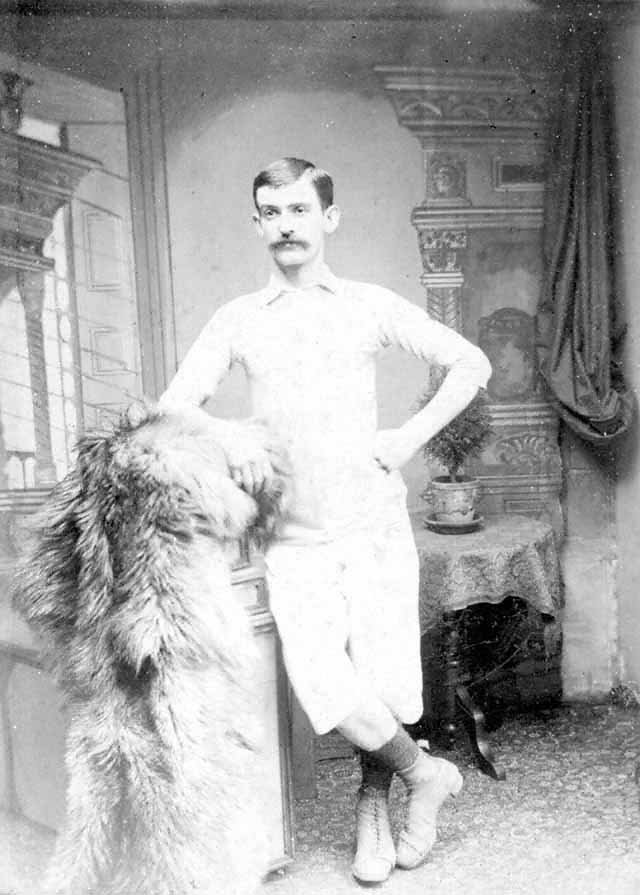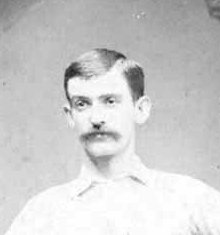The First Ever Transfer Made in Football History || The History Behind || 10% To @steemfc
Hello everyone, how are you all? Today, we will look down the road of history. In today's walk through the memory lane, I will discuss about the first ever professional football player. Or as you can say the first ever player transfer in football history.
10% Payout will Go To @steemfc For Supporting Their Program

How Was it Back Then

It's around 1870. More you can say is late 1800s. Football was an amateur game. Wealthy gentleman, university students, and working class people minds alike, formed teams and played football on weekends. The sport has always been a resounding success of course. And we're talking about Britain here, where football grew. Where football was founded that is a different question, debatable.
So in England and Scotland there were numerous teams alike, playing football. The players would be common people who worked during the week, and play during the weekends. It was rather amusing and not professional. Also, the committee that held football establishments together banned the fact of paying players for playing. Meaning it would be an amateur sport and any club to dishonor these rules will be punished accordingly. In Scotland there was a no nationwide competition at that certain time, but in England, there was the FA cup. Teams across the country would compete. Both the working class people and the well suited booted gentlemen. But as you can assume the working class people couldn't actually win anything overcoming the higher class people.

The Change

Fergus Suter was a Scottish stonemason. As like his father, Suter was a decent player. As he worked his days as a stonemason, he appeared in teams of Partick FC. But when the city bank of Glasgow collapsed Suter lost his job. Then he went across the country and started working as a stonemason in Darwen. There played an already Partick transferred player named James Love, but he wasn't paid. Fergus Suter was soon to join him. About this appointment Fergus Suter says in an interview:-
“‘On what plan were you [and James Love] paid in those days?’ [Suter] was asked, responding: ‘Well, we had no settled wage, but it was understood that we interviewed the treasurer as occasion arose. Possibly we should go three weeks without anything, and then ask for £10. We never had any difficulty.’”
This money was part of an underhand deal as paying people for playing was banned back then. It was Darwen FC's dirty old secret.

What Suter Brought To The City Of Darwen

English blokes back then were well fed and well paid and overall they had a better and healthy life considering the Scottish people. So the Scottish couldn't win a duel against the English in a head on challenge. That's why they started passing the ball. Instead of going at them, going around them was a more realistic and fruitful approach. The same happened at Darwen. In the FA cup when Darwen faced the Old Etonians (the team that consisted people from the royal family and thus the FA itself) they found themselves trailing 5 goals to 1. Although it wasn't an unfamiliar sight. The Old Etonians were literal bulldozers back then. They used to win the FA cup year in year out.
But in that game after trailing 5-1 it is known that in half time Suter gathered the players and elaborated them about the idea of passing the ball. They players understood that this was the only realistic way to get the better of the Old Etonians, they listened. And made a miraculous comeback in the 2nd half making it 5-5. All games were played in London then. So the Darwen club had to travel south again to play the replay. Only to draw 2-2 and eventually losing 5-2 in the 3rd replay as it was utterly unfair conditions for the northerners. But we mustn't forget that this was the first ever time a northerner working class team reached the last eight of the FA cup.

Fergus Suter pretty much made a name for himself by then in Darwen. But the hero was meant to soon become a villain. As he then joined Blackburn Rovers on a whooping 100 pound fee. But this was also a secret. And Darwen couldn't complain. Because that would reveal their own secret of hiring a player in the first place. Things would go tense between the two clubs. After leaving for Blackburn just after becoming captain of Darwen FC, Blackburn were to play Darwen in the next season's FA cup. The game wasn't played eventually as the players of the two clubs started fighting on the pitch regarding the transfer. Resulting in a career ending injury for Jimmy Love. The two clubs would never play each other again.

The Rise Of The Working Class Clubs

Blackburn was a working class team too. Just they had a wealthy and powerful owner from the inside. So they were able to recruit a number of professional players from around the country, obviously influenced by rival club Darwen. Blackburn would then be the first working class team to reach the final of the FA cup but lost narrowly to the Old Etonians by a score of 1-0. But they did win next season, and the next, and the next one too, with Fergus Suter dictating the tempo from full back.
This would be a triumph to remember for the working class people. As the FA soon found themselves in a place where they had to legalize the fact of hiring players on regulating wages. And so the the teams of the rich people who were privileged were never dominant again as before. This sparked a revolution. Years later when the first football league was formed it was Preston North End to win it which was also a team consisting of hired players and Scottish blokes
Why the Scottish players were being so much prioritized by the clubs? I'll share this story on another day. Till then, be safe, live healthy.

Best Regards: @mahirabdullah
Cc:-
@worldoffootball
@njaywan


Nice article buddy. I really liked your piece
Looks like Fergus Suter brought massive changes in this game.
Can't believe they it was wrong to pay players for playing back in the 1800s
Thanks for stopping by & the appreciation. I'm really glad you liked it.
Fergus Suter
I won't forget this name again.
Nice writeup bro